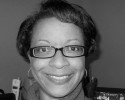Being a Leader Within the Community
By Sonya Stinson
July 23, 2015
The Wayne County Community College District chancellor’s community commitment exemplifies the community college mission.
Curtis Ivery, chancellor of Wayne County Community College District (WCCCD), has written several books and used some of the earnings from his writings to fund scholarships for WCCCD students. That’s just one expression of his personal commitment to promote what he calls the “transformational” power of education.
Ivery’s most recent work, Black Fatherhood: Reclaiming Our Legacy, is co-authored with his son, Marcus Ivery. More than anything, Ivery wanted the book to proclaim the fundamental role of fatherhood in the black community: “It simply means everything,” he says.
With six campuses, including one in downtown Detroit, WCCD serves more than 70,000 students. In this interview with the 21st-Century Center, Ivery talks about how, as part of its mission, the college district also serves the community at large and how he views his own position in that community.
How does the college district value its relationships within the community, and how do you view your role as chancellor in helping to cultivate those relationships?
The words “community” and “community college” have always meant something pretty special to me. I don’t move into the community pretending that I have all the answers, but what I’ve tried to do is create a sense of community … having those who support us relate to the notion that this is their college.
As Detroit was confronted with bankruptcy a few years ago, this college was a very critical place for conversations. We had a number of thought leaders come in and speak at our various locations. Being a multicampus [college] — we’re in six different locations throughout Wayne County — we had a chance to involve people in ways that others couldn’t.
When you are in an urban center, you have a large uninsured population, so we played a critical role in terms of getting information out about preventive health care, not using the hospital as your choice for primary care. We put on a number of clinics to help people be more informed about taking care of themselves.
Literacy is a very important issue. My wife [Ola, a retired public school teacher] has established a Bookworm Club that she operates with the college district. We go out to read to kids in daycares and schools, and we invite young kids in on the weekends. We have a bookworm mascot, and we give away books free to the kids when they come in. We’ve been doing that now for 10 years or more.
We also have large reading fairs that probably serve somewhere around 10,000 students a year. It’s part of our early childhood initiative, because we believe that the earlier we reach our young people, the better off we are. So we are trying to get books in their hands as early as possible.
Your new book looks at the role of black fathers as role models to their sons. As a successful leader in higher education, do you also see yourself as a role model to the broader African-American community?
I don’t give a lot of thought to whether I’m a role model — and I know it’s cliche to say that. It’s more about how I want to be remembered.
I’m reminded of what Abraham Lincoln said when someone asked him about how he wanted to be remembered. He said, “I want to be able to simply get up in the morning, look in the mirror and like what I see.” That’s kind of where I am. I want to make sure that I’ve done something positive, particularly for my children and other young people. I think they are counting on us.
What do you want your legacy to be?
That I was a fierce fighter for the nobility of education. It’s so important that we give everyone access to [education]. Education is transformational.
On my desk, I have a picture of my great-great grandfather and his father, and I have occasion to look at it every day I’m in the office. It reminds me of the importance of the responsibility that I have — to ensure that their lives matter, that their dreams matter. My grandfather made a comment to me once that he wanted me to be his dream. The dreams that he couldn’t accomplish, he wanted me to accomplish.
It’s not about dollars and cents. It’s being a champion for the dignity of people.





